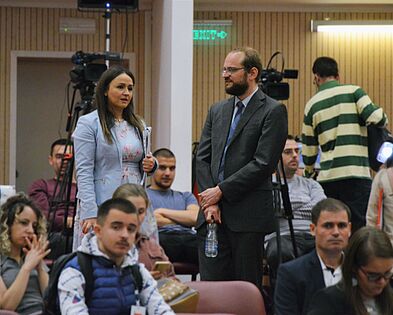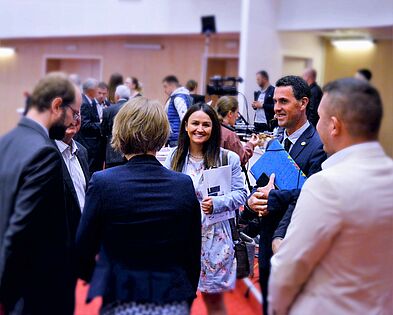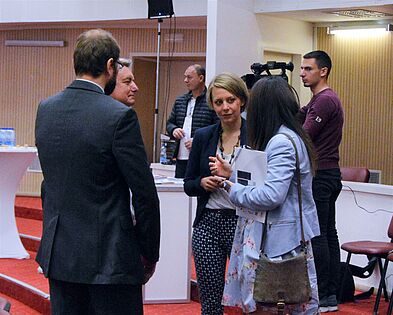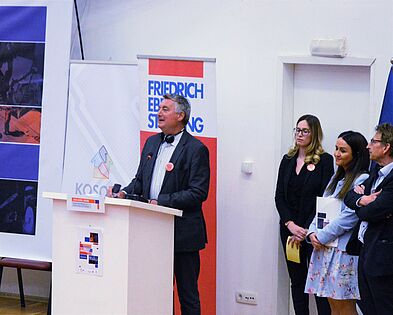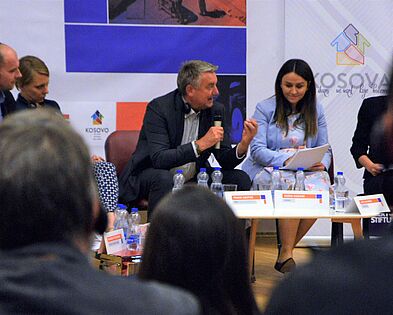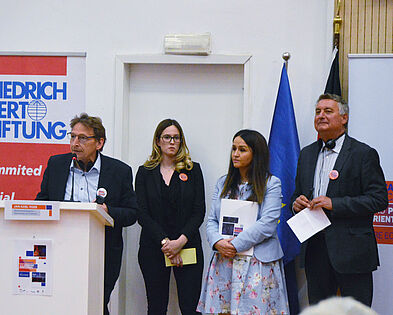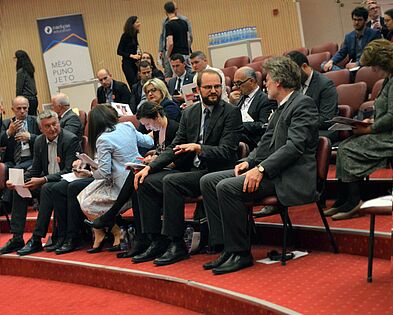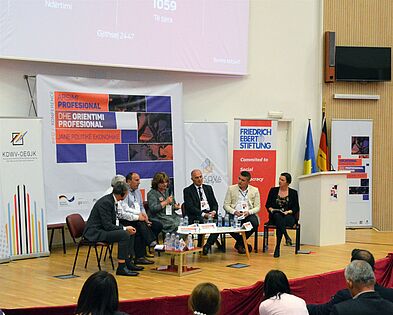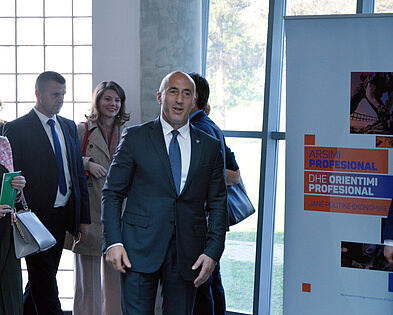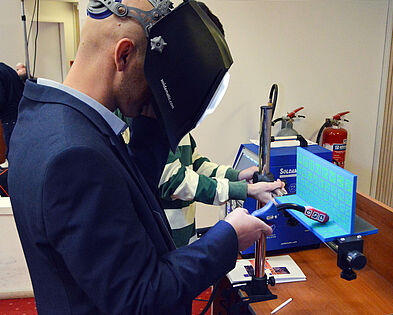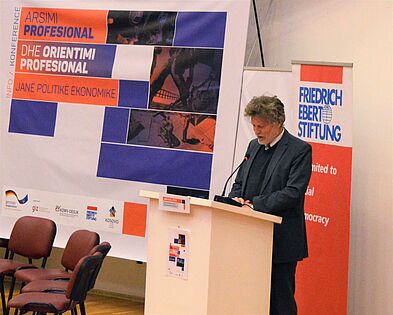Conference: Vocational education and professional orientation are an economic policy

The aim of this conference was to promote vocational education and professional training in Kosovo. According to the organizers of the conference there should be better cooperation between the state, society and the sector of economy that would then bring better perspectives for the people of Kosovo and more realistic alternatives for the youth when deciding about their future education. According to the German Deputy-Ambassador Mr. Jan-Axel Voss, the pillars of the economic development in Germany were and are vocational education and professional training, as well as the academic training. Germany therefore believes that Kosovo needs a system of education that offers quality education, both professional and academic. According to Mr. Voss, Kosovo doesn’t have to necessarily copy the German system of education, instead it can benefit from the principles of that system which combines theory with practice, economy sector with education, and cooperation between the state and the society. In order to achieve all this, there is a need for a better cooperation between all relevant actors.
In his presentation, Mr. Joachim Lapp from the German Business Committee for Vocational Training, explained that vocational education and professional training may be considered as an engine for the development of the economy. Therefore, businesses in Germany invest in professional training of the youth because it is good for the economy. According to Mr. Lapp, 55% of German businesses offer professional trainings and there is also a good cooperation established between vocational professional schools and businesses. This system of professional training is supported by the German state because it is beneficial for the economic development of the country. Mr. Hysni Ymeri, Director in Hymeri Kleemann Company in Kosovo, spoke about the challenges this company is facing because of lack of qualified staff and the need to prepare this staff to become more professional. The company is now offering trainings on mechatronics for youth who are interested to work in this company. This training lasts for several months during which theory is combined with practical work in the company. According to Mr. Ymeri, who now has 160 associates in his company, skills are obtained only in a company environment and not at the university.
He added that they get interns from professional technical schools and that so far there is a good cooperation with these schools. The first panel discussed about “General conditions for professional education in Kosovo and the experiences”. Mr. Ansgar Klinger from the German Trade Union of Education and Science, said that there needs to be a societal responsibility and a partnership for the development of the professional training. According to Mr. Klinger, employers and trade unions coordinate and agree on the new profiles for which there is a demand in the labor market, therefore the vocational schools have to respond by offering profiles for the labor market.
Mr. Isuf Qala, Principal in the vocational school Pjetër Bogdani, saidthat vocational schools still are not in a position to prepare students for the labor market and that parents hesitate to send their children to these schools. Mrs. Havushe Bunjaku, an entrepreneur and representative of the Parents’ Council, said that parents don’t want their children to be provided with certificates without having any possibility to find a job. According to Mrs. Bunjaku, vocational schools need to remain open for the professionals, in order to become more attractive for the pupils.
Mr. Kemajl Zariqi, Director in Plus factory, said that the society needs to be more aware of the fact that it is not a shame to go to a vocational school. Leona Jahiri and Bleron Morina, pupils in vocational schools, said that it is not a shame to go to a vocational school, on the contrary, vocational schools are very important. But, according to them, investments are needed for vocational schools and education because still there is a lack of sufficient practice in these schools. They appeal to all pupils to choose vocational schools.
During the second panel session, Ms Julia Becker, representative of the GIZ in Kosovo, said that curricula is improved and new practices can be implemented and that the image of the vocational schools would improve if there would be professionals and trainers working in them. Mr. Frank Hantke, Director of Friedrich-Ebert Foundation in Kosovo, is of the opinion that one cannot use the expression overqualified for a person that has finished university studies but does not have proper qualification for a certain vocation which does not require for any academic studies because qualifications do not have a hierarchy. According to Mr. Hantke, schools are not doing enough in identifying pupils’ talents.
Mrs. Valbona Fetiu Mjeku from the Ministry of Education, Science and Technology, said that no school in the world prepares pupils for work, instead it is the businesses that need to be part of schools.
By the end of the conference, Prime Minister Haradinaj in his speech said that the German state is an important partner for Kosovo and that different companies have expressed their interest to invest in Kosovo. According to Mr. Haradinaj, the government has accepted dual education in Kosovo and that funding will be provided for this area.
According to Mr. Haradinaj, it is not a tragedy that the youth are going to Germany because they can get some good practice there and then implement it in Kosovo.
According to Mr. Hantke, Director of Friedrich-Ebert Foundation in Kosovo, this conference is only the beginning and that vocational education in Kosovo will continue to be promoted. Mrs. Nora Hasani, Director of the Kosovar-German Chamber of Commerce (KDW), said that a lesson learned from this conference is that we need to cooperate better and inform the youth for the opportunities they have.
Mr. Klaus Bader-Labarre, from GIZ, said that the government needs to be more committed for the development of the vocational education in Kosovo.
This conference was moderated by Mrs. Jeta Xharra, Journalist.
Livestream video links:
I- https://www.facebook.com/FESPrishtina/videos/2488923794465841/?t=2
II - https://www.facebook.com/FESPrishtina/videos/2266808290066668/?t=0
III- https://www.facebook.com/FESPrishtina/videos/2198680733547830/?t=9
IV- https://www.facebook.com/FESPrishtina/videos/2110476219070159/?t=5
Friedrich-Ebert-Stiftung
Kosovo
Ul. Pashko Vasa 23
10000 Priština
Republika Kosovo


